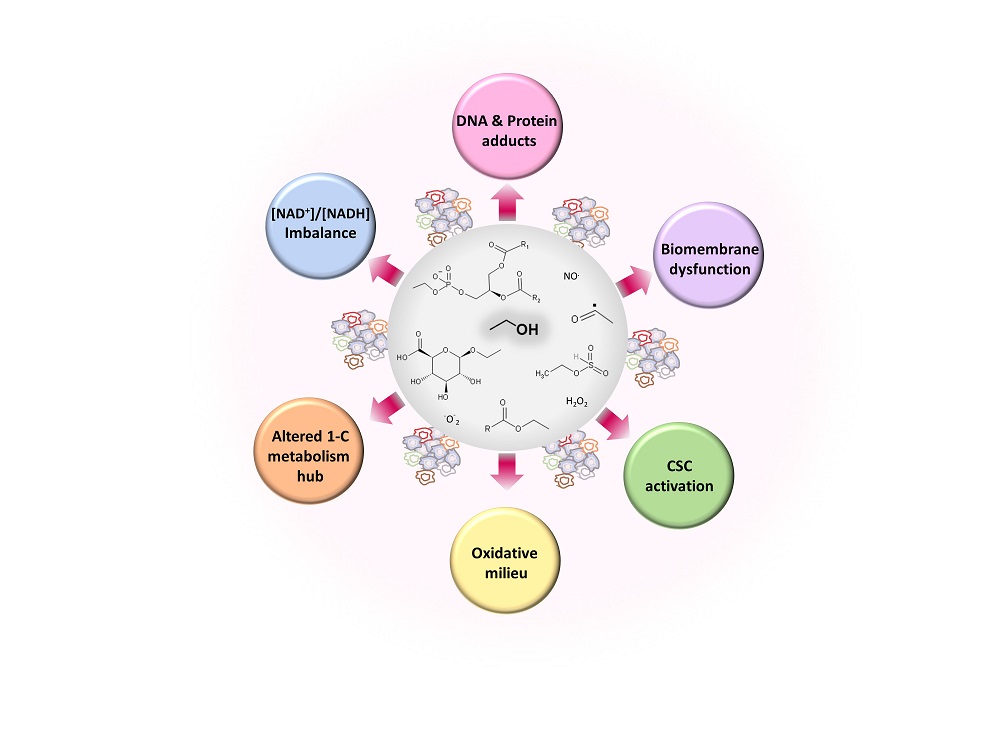The World Health Organization identifies alcohol as a cause in several neoplasias of the oro-pharynx cavity, esophagus, gastrointestinal tract, larynx, liver, or female breast. This study re-views ethanol's nonoxidative and oxidative metabolism and one-carbon metabolism that en-compasses both redox and transfer reactions that influence crucial cell proliferation machinery. Ethanol favors the uncontrolled production and action of free radicals that interfere with the maintenance of essential cellular functions. We focus on the generation of protein, DNA, and lipid adducts that interfere with the cellular processes related to growth and differentiation. Ethanol's effects on stem cells responsible for building and repairing tissues are reviewed. Cancer stem cells suffer disturbances related to the expression of cell surface markers, enzymes, and transcription factors after ethanol exposure with consequent dysregulation of mechanisms related to cancer metastasis or resistance to treatments. Our analysis aims to underlie and discuss potential targets that show more sensitivity to ethanol's action and identify specific metabolic routes and metabolic realms that may be corrected to recover metabolic homeostasis after pharmacological interven-tion. Specifically, research should pay attention to reestablish metabolic fluxes by fine-tuning the functioning of specific pathways related to one-carbon metabolism and antioxidant processes.

